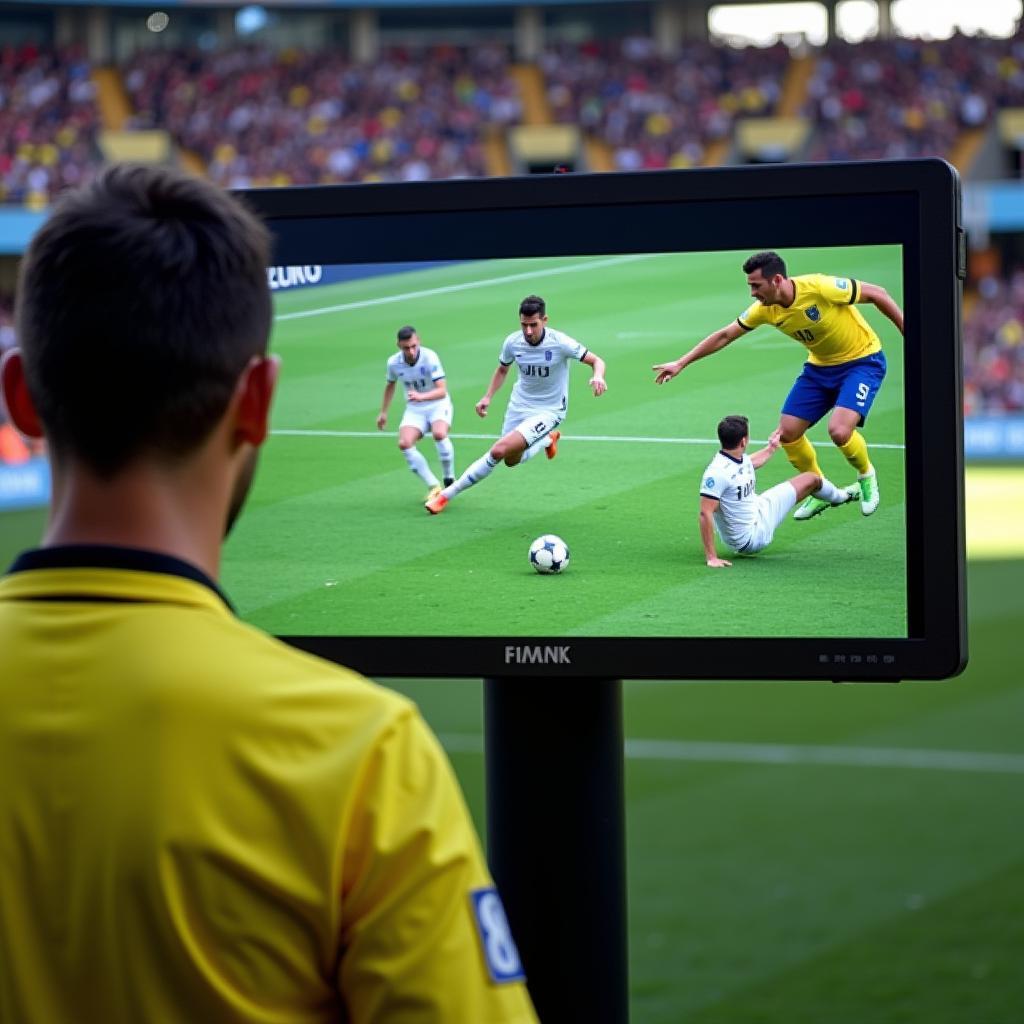Hoodwinked Game: Exploring the World of Deception in Football
December 6, 2024The beautiful game, as football is often called, can sometimes be a Hoodwinked Game. From elaborate dives to subtle handballs, deception plays a fascinating, if controversial, role. This article delves into the intricate world of trickery in football, examining its various forms, its impact on the game, and the ethical questions it raises.
The Art of Deception: How Players Hoodwink Opponents and Referees
Football isn’t just about skill and athleticism; it’s also about strategy and, sometimes, deception. Players often employ tricks and feints to gain an advantage, creating space, drawing fouls, or simply throwing off their opponents. This hoodwinked game within the game can be thrilling to watch, but it can also be frustrating for those on the receiving end.
- Diving: Perhaps the most notorious form of deception, diving involves exaggerating contact or even feigning contact altogether to win a free kick or penalty.
- Handballs: While some handballs are accidental, others are deliberate attempts to control or deflect the ball illegally, often going unnoticed by the referee.
- Feigning Injury: Some players might exaggerate the extent of an injury to waste time, disrupt the flow of the game, or influence the referee’s decisions.
- Subtle Offsides Traps: Defenders can use cunning positioning and timing to lure attackers into offside positions, effectively nullifying their runs.
The Impact of a Hoodwinked Game on Football’s Integrity
While some view these deceptive tactics as part of the game’s strategy, others argue they undermine its integrity. The hoodwinked game can lead to unfair advantages, influence match outcomes, and erode the spirit of fair play.
- Erosion of Trust: When players and teams resort to trickery, it creates a climate of distrust between players, teams, and even fans.
- Inconsistent Officiating: Deception makes the referee’s job incredibly difficult, leading to inconsistent decisions and fueling controversy.
- Negative Impact on Young Players: When young players see their idols engaging in deceptive practices, they might be tempted to emulate them, perpetuating the cycle of dishonesty.
Is Deception Ever Justified in Football?
This is a complex question with no easy answers. Some argue that a certain level of gamesmanship is acceptable, as long as it doesn’t cross the line into blatant cheating. Others believe that any form of deception, regardless of its intent, is detrimental to the sport.
“The line between cleverness and cheating is often blurry,” says Dr. John Smith, a sports psychologist specializing in football. “Players are constantly pushing the boundaries, testing how far they can go without getting caught. It’s a delicate balance.”
Combating Deception: The Role of Technology and Fair Play
Technology, such as VAR (Video Assistant Referee), has played a significant role in reducing the impact of deception in football. However, technology isn’t a panacea. Ultimately, promoting fair play requires a cultural shift, emphasizing ethical conduct and respect for the game.
- Stricter Enforcement of Rules: Referees need to be empowered to punish deceptive practices consistently and decisively.
- Education and Awareness: Educating players at all levels about the importance of fair play and the negative consequences of deception is crucial.
- Role Modeling: Professional players and coaches have a responsibility to set a positive example for younger generations by demonstrating integrity and sportsmanship on and off the field.
 VAR Review in Progress
VAR Review in Progress
In conclusion, the hoodwinked game, while a part of football’s complex tapestry, needs to be addressed to ensure the integrity and fairness of the sport. While the art of deception can be captivating, it’s crucial to strike a balance between strategy and sportsmanship. The future of football depends on fostering a culture of respect and fair play, where talent and skill, not trickery, determine the outcome of the game.
FAQs
- What are some common examples of deception in football?
- How does deception impact the fairness of the game?
- What role does technology play in combating deception?
- How can we promote fair play among young footballers?
- Is all deception in football considered cheating?
- What are the consequences of diving in football?
- How can referees identify and penalize deceptive practices effectively?
For further assistance, please contact Phone Number: 0915117113, Email: [email protected] Or visit us at: Hamlet 3, Binh An, Phu Thuong, Vietnam, Binh Phuoc 830000, Vietnam. We have a 24/7 customer support team.